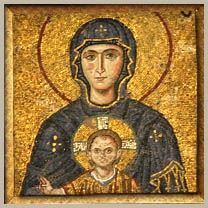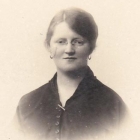Chapter One - My Military Service
I was born in 1859 in the town of Old-Ioriev, Kozlov District, Tambov Government. A strange coincidence: it is also in a town called Ioriev that, at the end of my life, I am putting my memories to paper. My birth and childhood in my peasant family present little of interest to speak of in particular. Nothing could have then let me forsee that I should be placed in the position of finding myself so close to the Imperial Family.
After reaching the age to enter into military service, I was a soldier for a five year term, however, I had obtained my diploma from the Superior School of the district, that diploma gave me the right to serve only a three year term instead of five. I began my service in the Pavlovsky Guard Regiment, in my first classification, and I passed from there to the Mobile Batallion of the Guard.
It was Grand Duke Alexander Alexandrovich, the future Emperor Alexander III, who had given me the first classification. Much later, during my service in the Mobile Batallion of the Guard, then Emperor Alexander III, having noticed me one day, asked me why I had begun in the Pavlovsky Regiment, and not in the Semenovsky Regiment - since my appearance was much more like that of the typical Semenovsky solider and unlike the typical Pavlovsky - and he also asked my who had made that classification. To his questions, I replied: "It was Your Majesty Himself, who made that classification," and the Emperor said to me: "Well then, it was I who is mistaken."
Even at the beginning of my military service, I started out as being an eye-witness to a historic and tragic event, that which cost Russia the Tsar-Liberator (the title given to Alexander II for freeing the serfs in 1861).
I was the outside guard at the Pavlovsky Regiment's barracks on the 1st of March 1881, at the crossing of the Moika, Champs du Mars, Millionaya Street and the Apterski alley; it was in that alley that I spent that day at my post as sentinal.
I had no idea that the Emperor had wished to pass by there, otherwise I would have been far more attentive in my observations.
Suddenly, from the side of the Catherine Canal, which split off exactly at the height of the barracks, the sound of an explosion echoed. I do not know why, but that explosion did not make me uneasy at all. Nevertheless, seeing as I was the sentinal on duty, I hastened to the side of the Catherine Canal.
Several seconds afterward, though, I heard a second explosion erupt, and it gave my soul much trouble. [the assassination of March 1/14 1881, which took the life of Emperor Alexander II, was prepared by the Executive Committee of the Revolutionary-Socialist party of the "Will of the People", and was executed by a "combat group" aided by Sophie Perovskaia. The first bomb was thrown by Ryssakov, but fell short of the Emperor's carriage which passed by unharmed. At that moment a second accomplice, Grinievitsky, threw a second bomb at the Tsar, which blew off both of his legs. Returning in agony to the Winter Palace, the Emperor breathed his last breath several moments later. -editor's note by ES]. I could see from my observation post, just at that moment, a cloud of smoke which slowly dissipated across the canal, and people quite agitated and disorderly, I also heard shouts and it seemed to me, the sound of a pursuit.
Several minutes later, a group of trainees passed by me, those from the prefect of police which had discovered the body of the Emperor, who had bled completely along Apterkarsky Alley, Millionaya Street, right up to the Winter Palace. The Tsar's entourage accomplished the last wish of the sovereign, who just before losing consciousness, pronounced his last words: "To the Palace...to die there..."
Several days later I found myself, in my duty assignment, enlisted as a recruit, to serve in the guard of the funeral cortege of Alexander II.
Terrible weather, -20 degrees of frost - we froze that day, even in our fur greatcoats, before the defiled one arrived. After a while, though, the head of the funeral cortege himself saw to it that, under his orders, we were to remove our coats and were to re-dress in our uniforms with red reverse.
The line was to have been, besides, quickly formed, and we were to return to our barracks. Afterwards, our meal would be over, and we were to be put on new watch and then to leave.
Again, we reformed in the Guards line with only our white armbands, without rifles along the length of Millionaya Street, down which passed, in an open sleigh accompanied by two Cossacks of the Guard standing at the back of the sleigh, the new Emperor Alexander III with Empress Marie Feodorovna. They went to the Peter and Paul Fortress along the Neva and Millionaya Street, and returned back to the Anitchkov Palace accompanies by a rather large escort.
The years which followed have not left me any salient memories that come to mind. I then came to be in service in the Guards at the Anitchkov Palace. I attended, along with my batallion, in the Coronation Services in 1883, in Moscow. This service went rather well. I had the command of a company conferred on me. I also passed the regulation period as an instructor.
A new opportunity opened up for me with the formation of a Batallion of the Mobile Guard. The Mobile Guard company, which had existed since the time of Alexander II, was to be transformed into a batallion. Its first chief was Count Stenbock, who left behind some of the best memories. He was succeeded by Colonel Hesse. I was then promoted to under-officer and I served there for two and a half years.
As an under-officer First Class, I had the great honor of teaching military arts and to instruct Tsarevich Nicholas Alexandrovich, future Emperor Nicholas II.
The happened almost by chance. It had originally been the first company which was designated to "to teach the service" to the heir to the throne, but they did not know nearly as much as the soldiers of the Praeobrazhensky Regiment, headed itself by the Tsarevich. But, since the sergeant-major of the first company was not really capable of performing his functions, it was I who was assigned in his place, better me than someone from another company.
This instruction took place at Peterhof during the height of summer 1884. The heir to the throne commanded the first half-company, I the second, and Col. Hesse commanded the entire company itself. It was exactly in this time that I made the personal acquaintance of Nicholas II.
I remember very well how much Grand Duke George Alexandrovich (Nicholas II's younger brother) was interested in our work. But, he was very timid, and he would hide behind the thick bushes and follow our military exercises most attentively. The future Emperor was known for this same timidity. He would come to tell me something most pleasantly, and affably, then most confusingly, he would suddenly physically distance himself.
Everyone knew very well the passion Emperor Alexander III had for fishing. I have the most vivid memories of this.
Returning in autumn from Peterhof to Gatchina, Alexander III became obsessively engulfed by his favorite pastime. He would go to fish in the lake at Gatchina, usually after midnight. In his canoe would be the Emperor, a hunter and the seaman who rowed it. Another canoe followed, carrying only seamen. The hunter held a lit torch, the Emperor would spear the fish which surfaced being attracted by the light with a harpoon, which he kept ever at the ready. The commander of his guard would always confide in me: "Only I have the right to follow the Imperial Canoe along the lake shore, my men were required to follow me without my seeing them, so they hid in the bushes." The Emperor would return from his fishing very late, most often right at dawn.
Emperor Alexander III would move back to St. Petersburg for a relatively short time, generally from New Years until the second part of Lent. He spent the rest of the year living at Gatchina and Peterhof.
Comments on this site should be directed to Bob Atchison.

